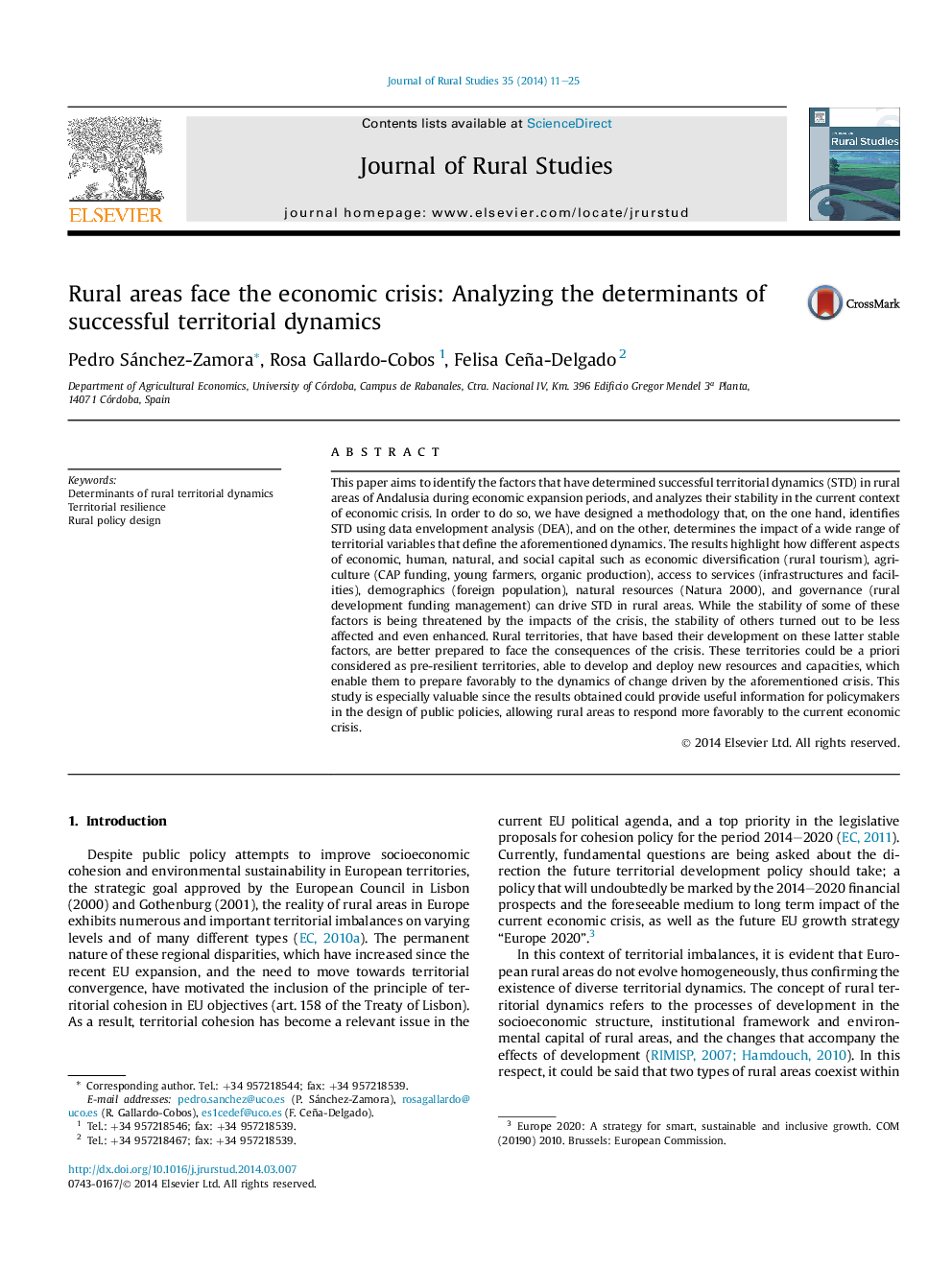| کد مقاله | کد نشریه | سال انتشار | مقاله انگلیسی | نسخه تمام متن |
|---|---|---|---|---|
| 92481 | 159975 | 2014 | 15 صفحه PDF | دانلود رایگان |
• We identify the determinants of successful territorial dynamics (STD).
• Different aspects of economic, human, natural and social capital can drive STD.
• The stability of the determinants is analyzed in a context of economic crisis.
• Pre-resilient territories are characterized from the stability of the determinants.
• The results provide useful information for the design of public rural policies.
This paper aims to identify the factors that have determined successful territorial dynamics (STD) in rural areas of Andalusia during economic expansion periods, and analyzes their stability in the current context of economic crisis. In order to do so, we have designed a methodology that, on the one hand, identifies STD using data envelopment analysis (DEA), and on the other, determines the impact of a wide range of territorial variables that define the aforementioned dynamics. The results highlight how different aspects of economic, human, natural, and social capital such as economic diversification (rural tourism), agriculture (CAP funding, young farmers, organic production), access to services (infrastructures and facilities), demographics (foreign population), natural resources (Natura 2000), and governance (rural development funding management) can drive STD in rural areas. While the stability of some of these factors is being threatened by the impacts of the crisis, the stability of others turned out to be less affected and even enhanced. Rural territories, that have based their development on these latter stable factors, are better prepared to face the consequences of the crisis. These territories could be a priori considered as pre-resilient territories, able to develop and deploy new resources and capacities, which enable them to prepare favorably to the dynamics of change driven by the aforementioned crisis. This study is especially valuable since the results obtained could provide useful information for policymakers in the design of public policies, allowing rural areas to respond more favorably to the current economic crisis.
Journal: Journal of Rural Studies - Volume 35, July 2014, Pages 11–25
